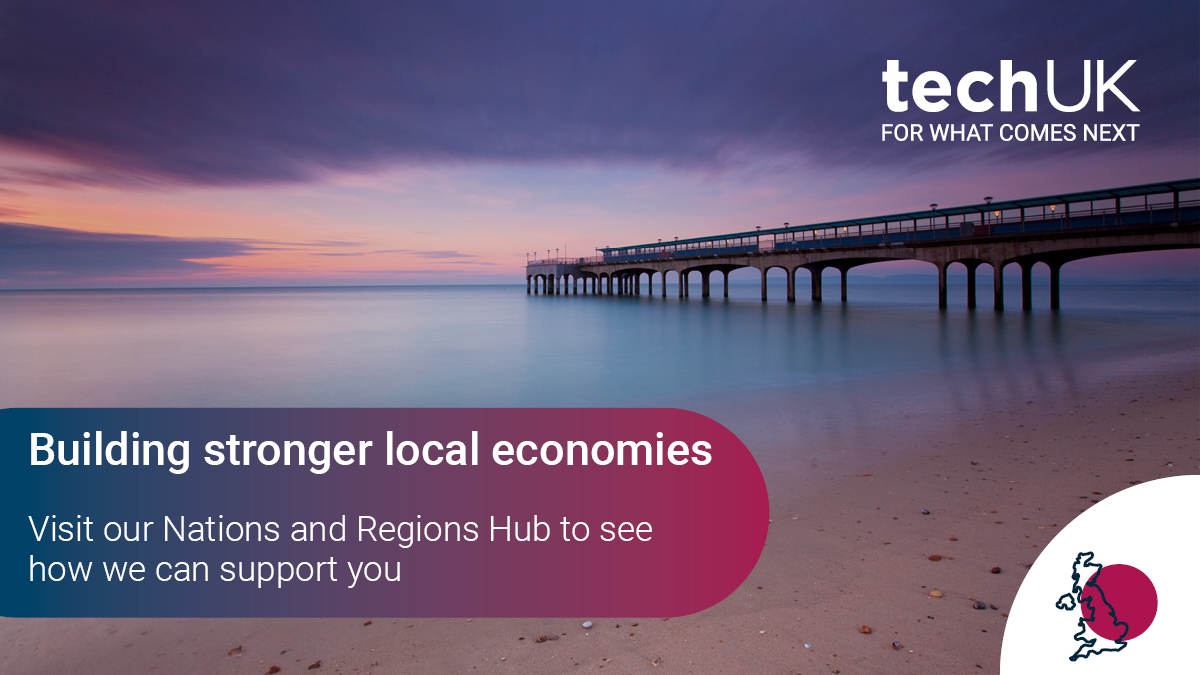Event roundup: Using data to drive digital transformation – what can the public and private sector teach each other?
On 20 September, we were delighted to partner with techUK member dxw, to host a roundtable part of Leeds Digital Festival 2023, to discuss how can we use data to drive digital transformation in the public and private sectors.
Thank you very much to our expert speakers for this panel for joining us and sharing their thoughts on the topic:
- Heather Cover-Kus, Head of Central Government Programme, techUK
- Emma Presley Abbott, Deputy Director, Head of Enterprise Insight, Head of Practice, Data, Department for Work and Pensions
- Alex Yedigaroff, Head of Product and Performance, dxw
- Ed Thewlis, Co-founder, Data Shed
- Gavin Freeguard, Policy Associate, Connected by Data
The discussion started by looking at the role of data in digital transformation and the need for digital strategies. Emma noted that data forms a key pillar in the CDDO’s cross-government digital and data strategy which presents the government’s ambition to make better use of data in services and for decision making. Ed advised that digital strategies should not standalone. Rather they need to relate to a wider organisational strategy and should be aligned to clear actions and responsibilities. The most effective strategies are well articulated and have clear implementable metrics.
The conversation then explored the opportunities and challenges presented by improved access to public sector data. On one hand, viewing data as a service allows us to build new initiatives around data and drive better outcomes. Indeed, just publishing government data has already led to innovation, like the Leeds Bins app. There are also brilliant examples of government departments like DWP, HMRC and others, working together to pilot initiatives around a common purpose. However, on the other hand, the panellists warned of the challenges of using public sector data. They noted the need for proper governance and control to avoid misuse of data sharing. Alex recognised that the language around data sharing is disjointed, and as such, there is a need to focus on standards and language definitions.
We then moved on to discuss ethics around data and how we can ensure we are effectively weaving data ethics into technology development. Gavin noted that we need to involve communities affected by decisions in the conversation, and bring them along on the journey. On a positive note, the government was quick to deliver data ethics frameworks. We now have tools to help people in private and public sector, we have regulations for systems that we procure to be in line with the ethics, as we need to make sure we are seeing how our data is being used.
We also talked about the cultural scepticism in the UK around data sharing and that we need to show people the value that they can get from having their data shared. It’s also important to understand your user requirements and ensure they are represented in all that you do. The more we can showcase success stories where data sharing brought value, we can start to create cultural and behavioural changes.
For the final topic the panel considered data literacy and whether we have the right skillset in private and public sector to capitalise on data driven digital transformation. There was wide agreement that more data practitioners should be embedded in teams that can solve problems and help with digital transformation. We need advanced data skills for data science and for everybody to have some degree of data literacy and basic understanding of how these things work, as well as greater diversity of people making decisions. To address this challenge DWP are taking a variety of approaches including apprenticeships, T levels, trainings, upskilling within the organisation and launching a digital academy to tackle digital literacy and target skills gaps. More broadly, there is a need to build the pipeline of talent all the way from schools, and to engage with a variety of academic institutions in different geographies as well to ensure a sustainable talent pipeline. We also need to look at the level of digital literacy among decision makers and C-suite executives. CDDO’s “One Big Thing” initiative aims to get civil servants from all levels to take 90 mins of data learning classes in September.
The panel concluded that while data science and data analytics are tough, good useful data is key to enabling the new technologies driving innovation. To make best use of data’s power, we need to safely share data and understand the relationships between data, digital and the overarching objectives of the organisation. We also need to ensure that data and digital professionals are seen as an integral part of any business while also distributing responsibilities for digital transformation across the organisation. Finally, we need to spread the good news and share positive stories of what can be achieved when data powers transformation.

Ileana Lupsa
Ileana Lupsa is the Programme Manager for Local Public Services and Nations and Regions, at techUK.

Matt Robinson
Matt is techUK’s Head of Nations and Regions.
techUK – Building Stronger Local Economies

techUK champions the tech sector throughout the UK. We work with local authorities, devolved government, and local and national policy makers to advocate for the tech sector in strengthening economic growth and resilience. We provide opportunities for our members and local stakeholders to meet, build relationships, and collaborate to drive forward local projects. For more information or to get in touch, please visit our Nations and Regions Hub and click ‘contact us’.
Upcoming Nations and Regions events:
Latest news and insights:
Nations and Regions updates
Sign-up to get the latest updates and opportunities from our Nations and Regions programme.
Contact the team:
Learn more about our Nations and Regions campaign:









